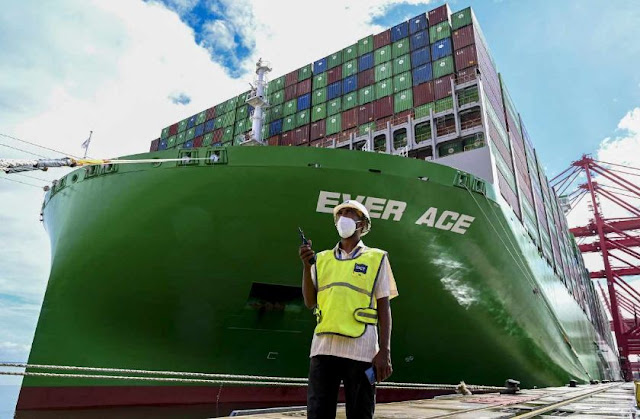Spices, wool, toys, smartphones ... the shortages are gone to last
Several grains of sand have gripped a hitherto well-oiled global supply chain, energized by a strong upturn in demand. Until it derailed.
The world economy has turned into the unpredictable. In Europe and the United States, consumption, helped by support plans, resumes over the course of vaccination campaigns, while in Asia factories and ports are closed to curb the circulation of Covid-19. Caught between the two, shipping companies must transport rapidly increasing volumes of goods (+ 10.8% in 2021, according to the latest forecasts from the World Trade Organization).
The congestion of container ships is growing at the entrance to ports, lengthening transport times and fueling soaring freight prices, which have increased tenfold in eighteen months. Result: shortages multiply, from spices to wool, from toys to iPhones. Some lead to others: the lack of semiconductors has, for example, forced car manufacturers to shut down the activity of some of their factories.
“In the United States and in Europe, activity is back to its pre-crisis level but its composition is different,” emphasizes Sébastien Jean, director of the Center for Prospective Studies and International Information. The demand for durable goods is greater while the consumption of services is declining. " The increase in purchases of electronic products, for example, has accompanied the rise of telecommuting and the digitization of the economy, the accumulation of savings income households during the containment has boosted auto sales during the reopening of economies, and the good health of the construction sector, especially in the United States, is dragging in its wake that of household goods.
"In a world where everything is anticipated and planned, and where logistics chains operate just in time, the slightest unforeseen can sow chaos as in an orchestra where a musician takes the wrong rhythm", observes Mr. Jean. The longer the crisis lasts, the more painful the consequences. The shortages lead to higher prices which could in turn push central banks to tighten their monetary policies, with the risk of breaking the economic recovery.




Comments
Post a Comment